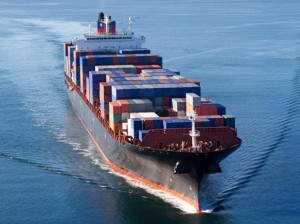
Indigenous shipowners have accused the Federal Government of lacking the political will and commitment to establish a national carrier.
Nigeria’s only national carrier, the Nigerian National Shipping Line (NNSL), was established by the Nigerian government in 1959. Despite heavy investment and subsidies, the state-owned company was unable to compete with European lines, even as much of the investment went into enriching the political elite. NNSL ran into deep depths and was eventually liquidated by the government of late General Sani Abacha in 1995 and all its 21 vessels were sold off.
Former Minister of Transportation, Rotimi Ameachi had in 2016 set up a National Fleet Implementation Committee headed by the Executive Secretary of Nigerian Shippers’ Council, Hassan Bello, to midwife the establishment of a national carrier that would fly the Nigerian flag and provide sea time experience for cadets.
The committee had signed a Memorandum of Understanding (MoU) with Pacific International Lines (PIL), a Singapore-based shipping line under the terms of agreement that Nigerian private sector operators would maintain a 60 percent equity ratio while PIL retains 40 percent. The deal collapsed before seeing the light of day.
Ameachi had while speaking at a valedictory meeting organised by the Nigerian Maritime Administration and Safety Agency (NIMASA) recently in Lagos admitted that the plan to float a national fleet failed during his tenure. He blamed the failure on Nigerian shipowners, whom he said failed to raise the 60 percent stake allotted to them.
However, reacting to the Minister’s statement, Secretary-General of the African Shipowners Association, Funmi Folorunsho, said the Federal Government lacked the political will and courage to establish a national carrier for the country.
She noted that the issues of establishing a national fleet goes beyond setting up a committee without addressing some inherent challenges facing the indigenous shipowners.
She sad, “Take Ethiopia shipping line for example; why is a landlocked country carrying vessels while we can not have a vessel? It is because there is a strong political will that every cargo that is Ethiopian must be carried on an Ethiopian vessel. You have done quite well as Minister of Transportation but I think the political will for a national fleet development in Nigeria is still not there.”
Folorunsho said there is need for the Federal Government to address the issues of carriage of the nation’s crude oil export as Free On Board (FOB) and import as Cost, Insurance and Freight (CIF), as well as availability of government cargo.